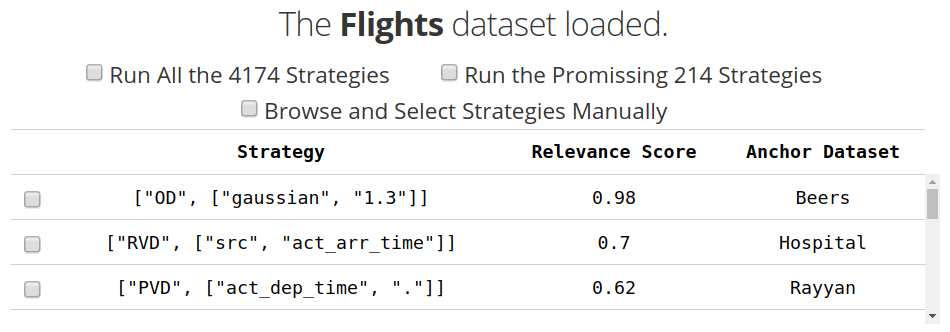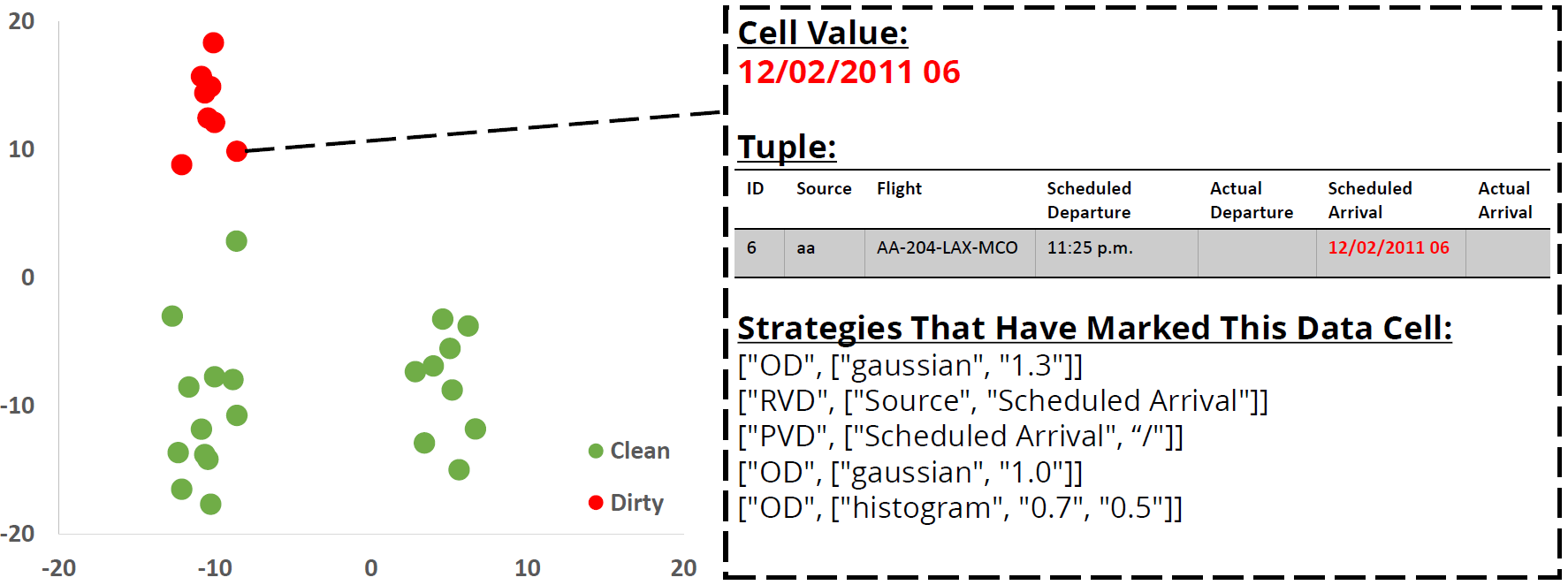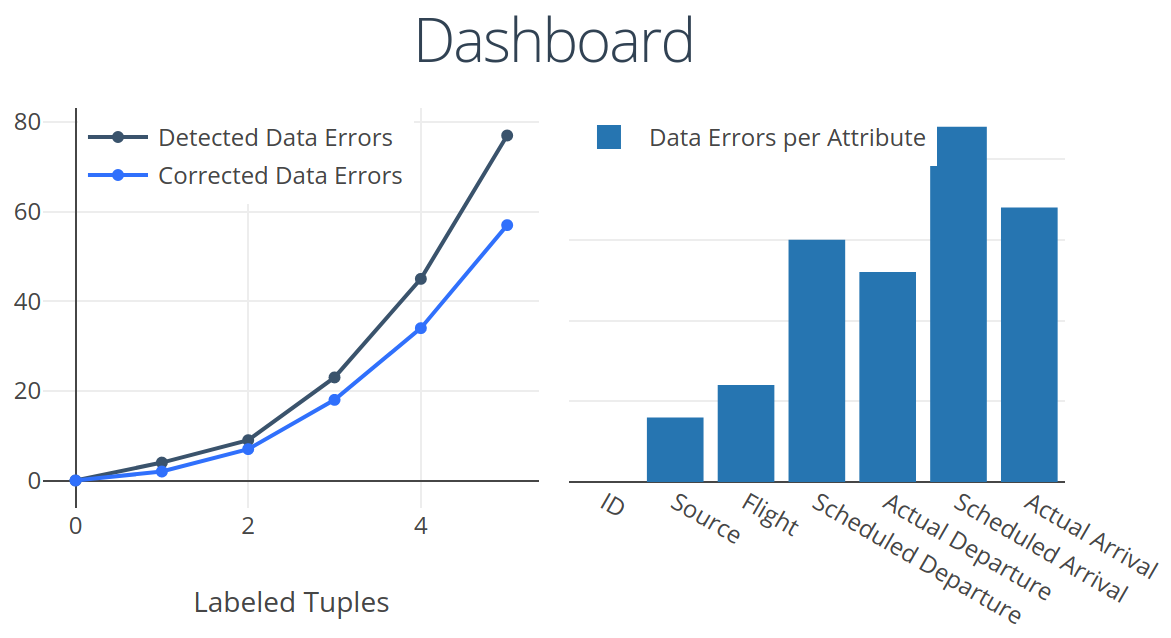Raha and Her Younger Sister Baran
Detecting and correcting erroneous values are key steps in data cleaning. Error detection/correction systems usually require a user to provide input configurations in the form of integrity constraints or statistical parameters. However, providing a complete, yet correct, set of configurations for each new dataset is tedious and error-prone, as the user has to know about both the dataset and the data cleaning system upfront.
Raha and Baran are new configuration-free error detection and correction systems, respectively. On an abstract level, both Raha and Baran follow the same novel two-step formulation of the error detection/correction task that achieves both high precision and recall. First, each base error detector/corrector generates an initial set of potential data errors/corrections. This step particularly increases the achievable recall bound of the error detection/correction task. Then, Raha/Baran ensembles the output of these base error detectors/correctors into one final set of data errors/corrections in a semi-supervised manner. In fact, Raha/Baran iteratively asks the user to annotate a tuple, i.e., marking/fixing a few data errors. Raha/Baran learns to generalize the user-provided error detection/correction examples to the rest of dataset, accordingly. This step particularly preserves high precision of the error detection/correction task. Furthermore, both systems can leverage historical data to optimize the data cleaning task on the dataset at hand, according to transfer learning.
Installation
To install Raha and Baran, you can run:
sudo python3 setup.py installTo uninstall them, you can run:
sudo pip3 uninstall rahaUsage
Running Raha and Baran is simple!
- Benchmarking: If you have a dirty dataset and its corresponding clean dataset and you want to benchmark Raha and Baran, please check the sample codes in
raha/benchmark.py,raha/detection.py, andraha/correction.py. - Interactive data cleaning with Raha and Baran: If you have a dirty dataset and you want to interatively detect and correct data errors, please check the
raha/end_to_end_data_cleaning_pipeline.ipynbnotebook. A user interface is alsocoming soon.



References
You can find more information about this project and the authors here. You can also use the following bib entries to cite this project and the corresponding research papers.
Citing Raha
@inproceedings{mahdavi2019raha,
title={Raha: A configuration-free error detection system},
author={Mahdavi, Mohammad and Abedjan, Ziawasch and Castro Fernandez, Raul and Madden, Samuel and Ouzzani, Mourad and Stonebraker, Michael and Tang, Nan},
booktitle={Proceedings of the 2019 International Conference on Management of Data (SIGMOD)},
pages={865--882},
year={2019},
organization={ACM}
}
Citing Baran
@article{mahdavi2020baran,
title={Baran: Effective error correction via a unified context representation and transfer learning},
author={Mahdavi, Mohammad and Abedjan, Ziawasch},
journal={Proceedings of the VLDB Endowment (PVLDB)},
volume={13},
number={11},
pages={1948--1961},
year={2020},
publisher={VLDB Endowment}
}
A Note on the Naming
Raha and Baran are Persian feminine names that are conceptually related to their corresponding error detection/correction systems. Raha (which means "free" in Persian) is assigned to our "configuration-free" error detection system. Baran (which means "rain" in Persian and rain washes/cleans everything) is assigned to our error correction system that "cleans" data.